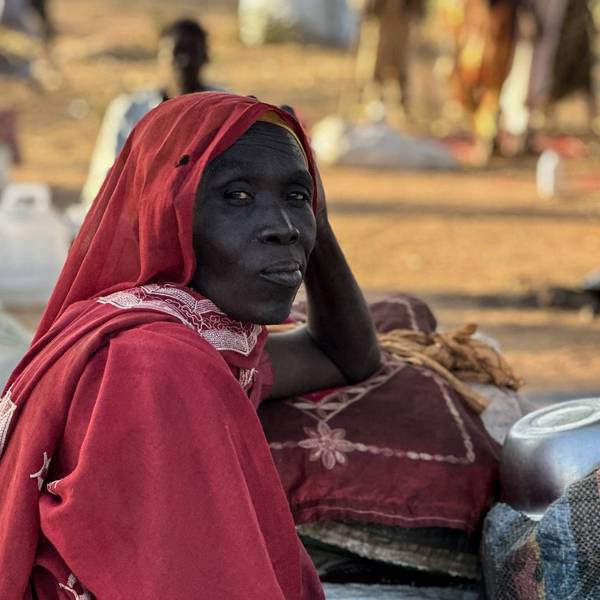With heightened attention on Saudi Arabia's crimes in the wake of the alleged murder of Washington Post columnist Jamal Khashoggi at the country's consulate in Turkey, the United Nations is warning that if current conditions continue, the U.S.-backed war in Yemen led by Saudi Arabia and the United Arab Emirates could cause "the worst famine in the world in 100 years."
"There's no question we should be ashamed, and we should, every day that we wake up, renew our commitment to do everything possible to help the people that are suffering and end the conflict."
--Lise Grande, United Nations
"I think many of us felt as we went into the 21st century that it was unthinkable that we could see a famine like we saw in Ethiopia, that we saw in Bengal, that we saw in parts of the Soviet Union--that was just unacceptable," Lise Grande, chief of the U.N.'s diplomatic mission in Yemen, said in an interview with BBC News.
"Many of us had the confidence that would never happen again and yet the reality is that in Yemen that is precisely what we are looking at," she continued. "We predict that we could be looking at 12 to 13 million innocent civilians who are at risk of dying from the lack of food."
Asked by BBC correspondent Orla Guerin if the global community should be ashamed about what already has become the world's worst humanitarian crisis, Grande responded: "Yes. There's no question we should be ashamed, and we should, every day that we wake up, renew our commitment to do everything possible to help the people that are suffering and end the conflict."
Yemeni civilians who don't starve to death or die from rampant disease are still at risk of being killed by the Saudi and UAE-led coalition's airstrikes. Since June, when the coalition launched an offensive to take control of Hodeidah, civilian deaths in and around the port city have "surged dramatically." Over the weekend, Saudi bombings killed at least 15 civilians and injured 20 others who were traveling on passenger buses.
Denouncing the weekend incident as "horrific," Grande declared in a statement that "the United Nations agencies working in Yemen unequivocally condemn the attack on civilians and extends our deepest condolences to the families of the victims." She also issued a reminder that targeting civilians, or even declining to protect them, violates international humanitarian law.
The weekend attack followed similar deadly strikes earlier this year, including when coalition forces dropped a U.S.-made bomb on a school bus in August, killing 40 boys aged six to 11.
Following Khashoggi's suspected murder, President Donald Trump has been hit with a new wave of pressure to stop selling arms to Saudi Arabia and end support for the coalition. While Trump, in an interview with CBS's "60 Minutes" that aired Sunday, threatened "severe punishment" if the United States finds evidence that Khashoggi was killed in the Saudi consulate in Istanbul, the president has also repeatedly said in recent days that he doesn't want to cut off arms sales to the country because it would cost U.S. weapons manufacturers jobs and profit.
"Regardless of what ultimately happened to Khashoggi, continuing U.S. arms sales and military support to Saudi Arabia under current circumstances is immoral."
--William D. Hartung, Center for International Policy
Last month--even before Khashoggi's suspicious disappearance--Rep. Ro Khanna (D-Calif.) and a bipartisan group of lawmakers introduced legislation that aims to revoke all U.S. support for the war. It was welcomed by peace advocates as a long overdue move that "offers a glimmer of hope to the suffering people of Yemen."
William D. Hartung, director of the Arms and Security Project at the Center for International Policy and a supporter of Khanna's measure, argued Monday that "regardless of what ultimately happened to Khashoggi, continuing U.S. arms sales and military support to Saudi Arabia under current circumstances is immoral."
"Jobs should not be an excuse to arm a murderous regime," Hartung asserted, "that not only may be behind the assassination of a U.S. resident and respected commentator but is responsible for thousands of civilian casualties in its three-and-one-half-year military intervention in Yemen--the majority killed with U.S.-supplied bombs and combat aircraft and U.S. refueling and targeting assistance."




